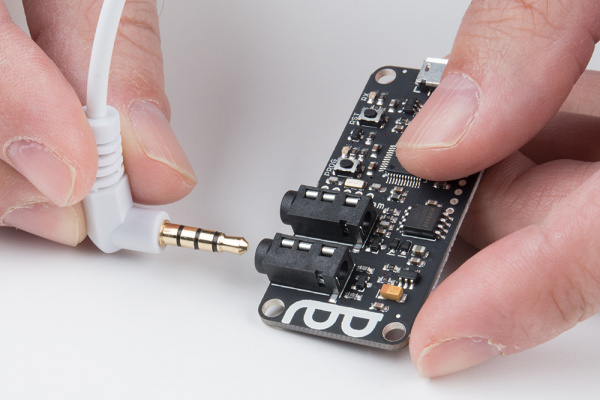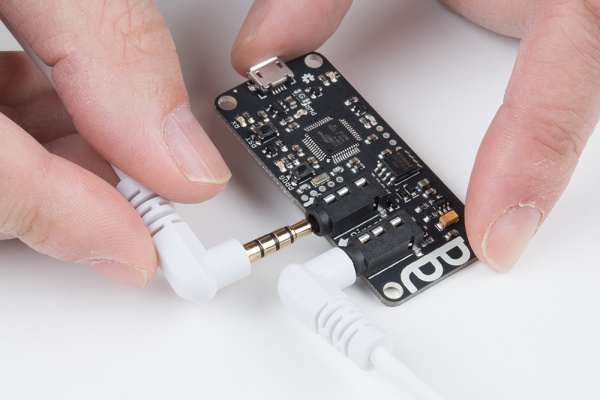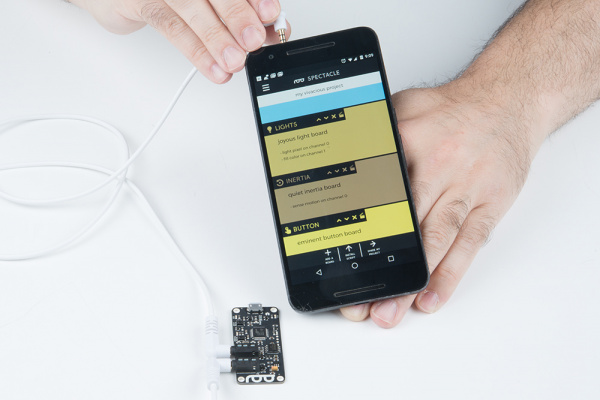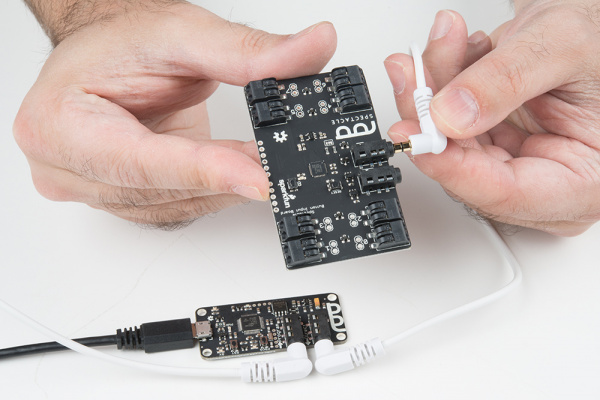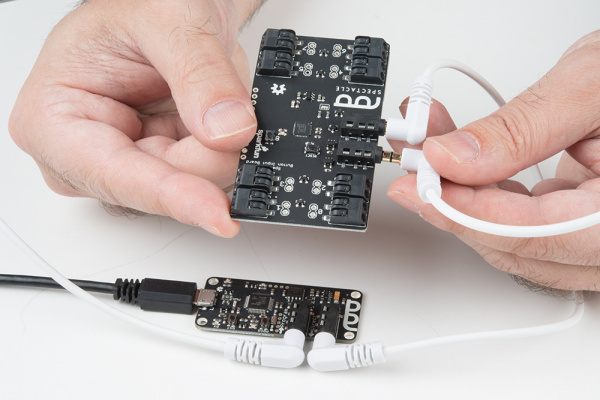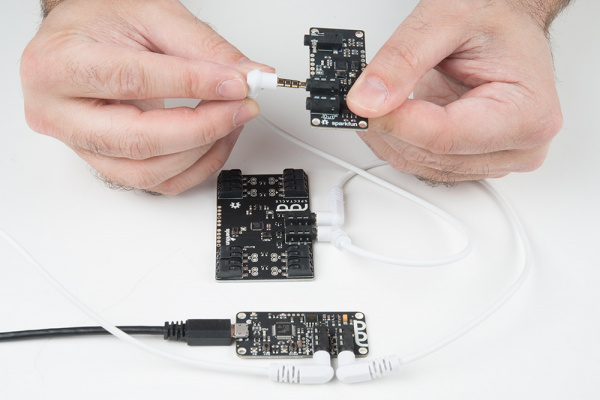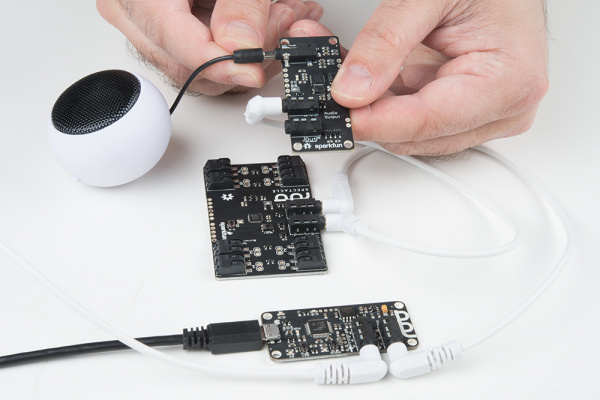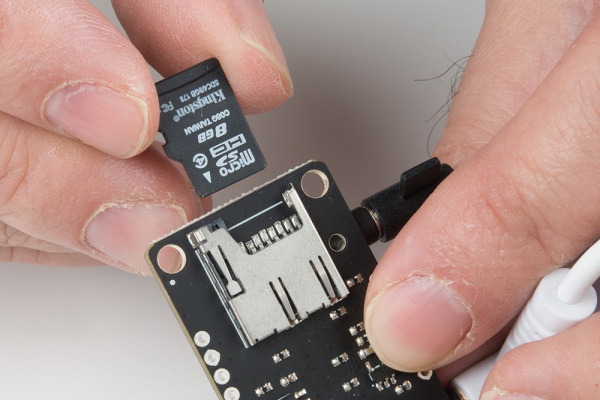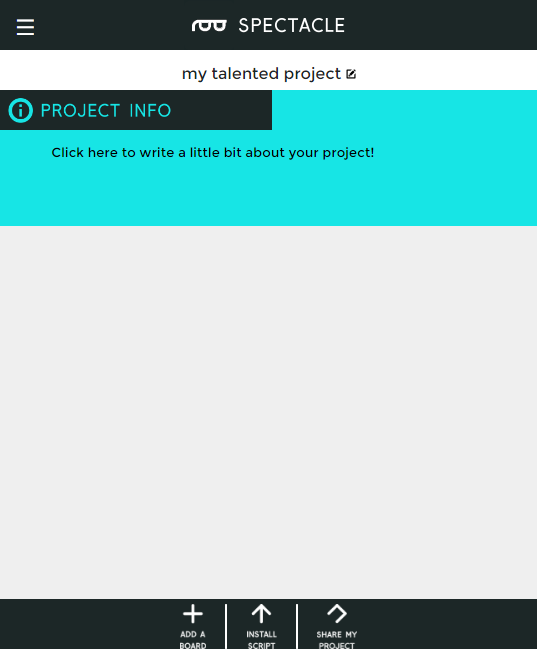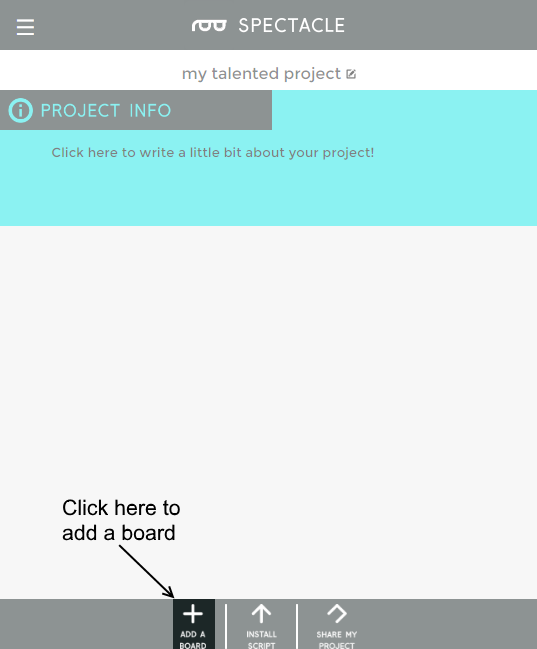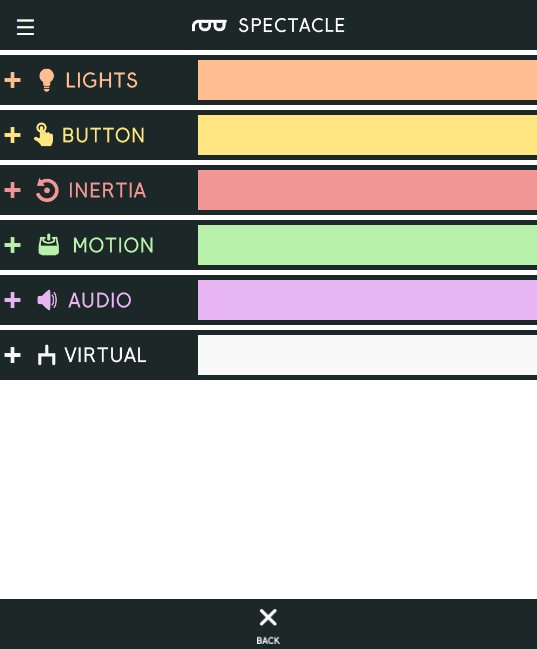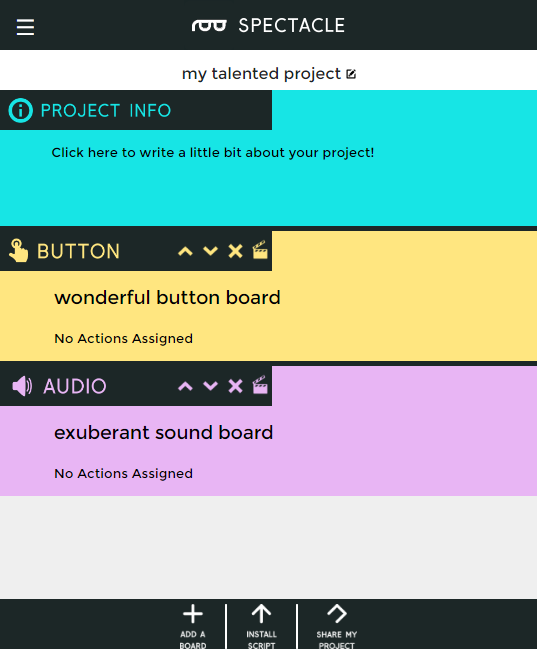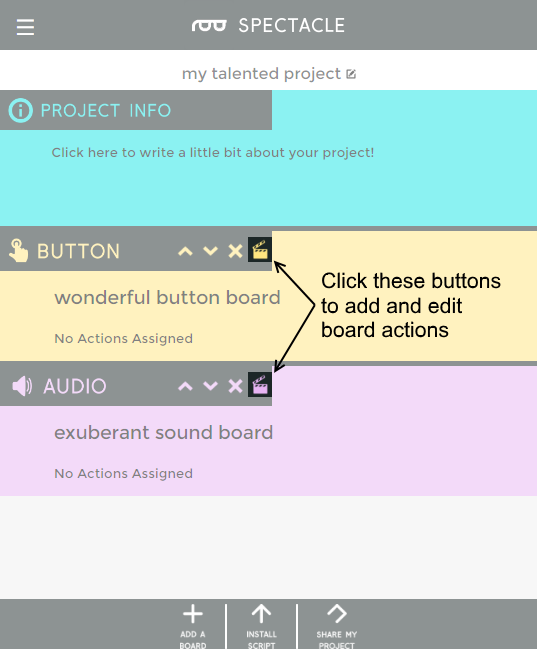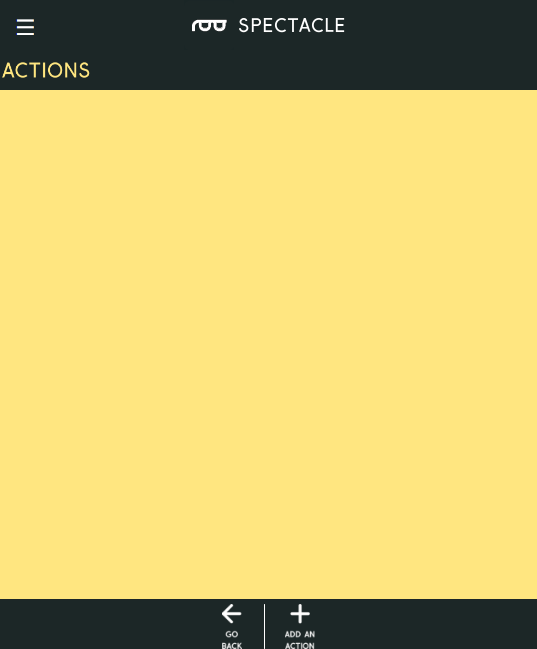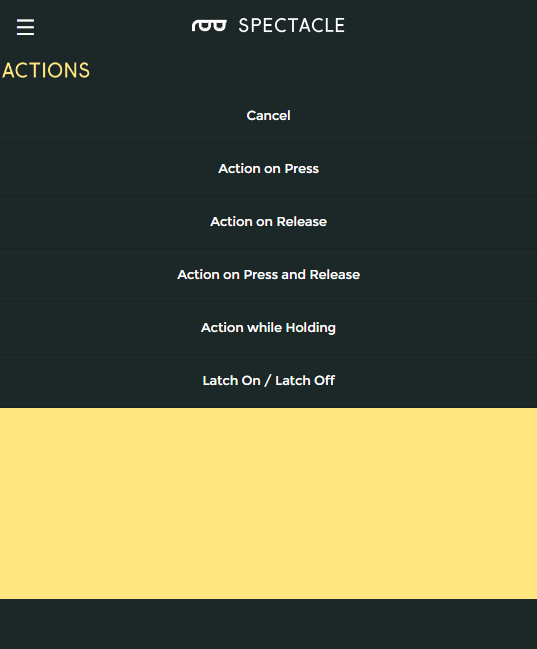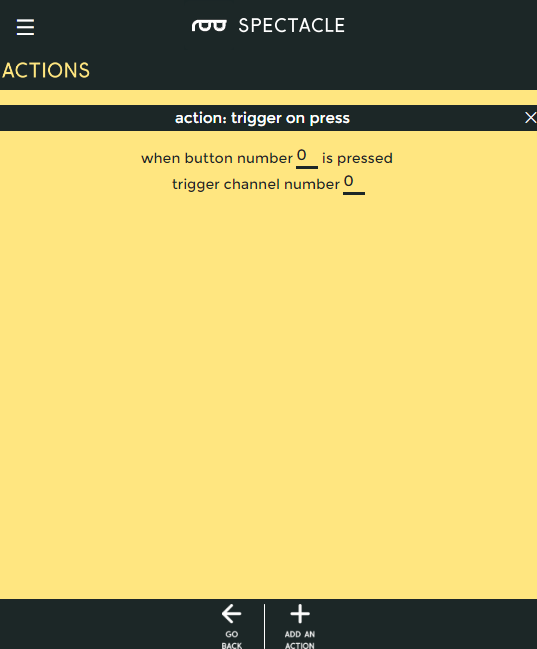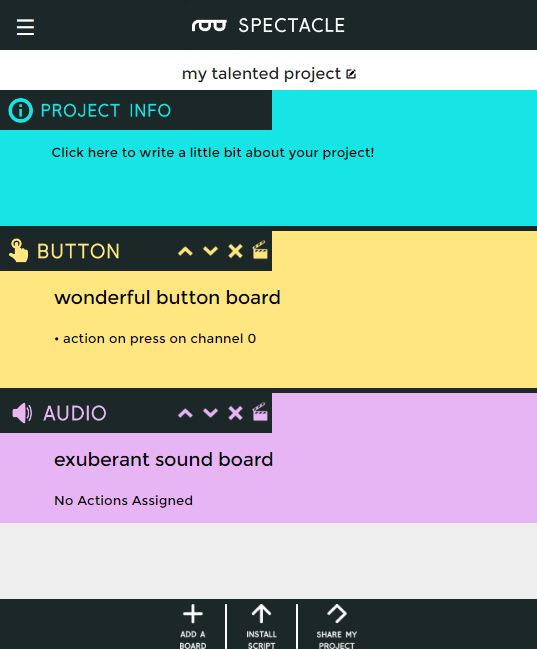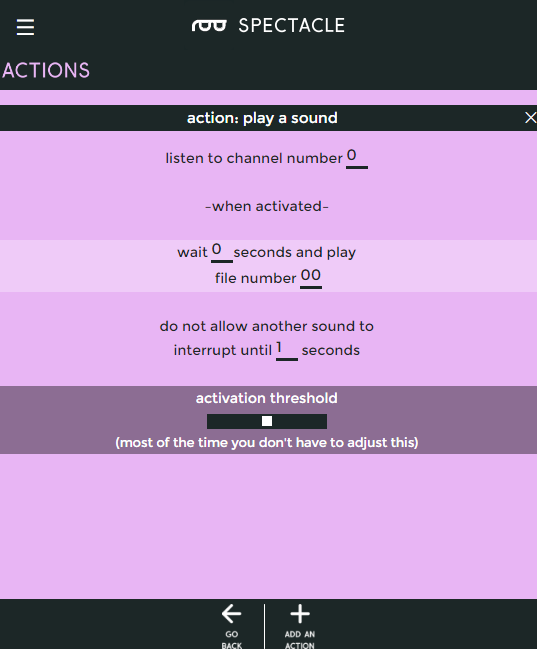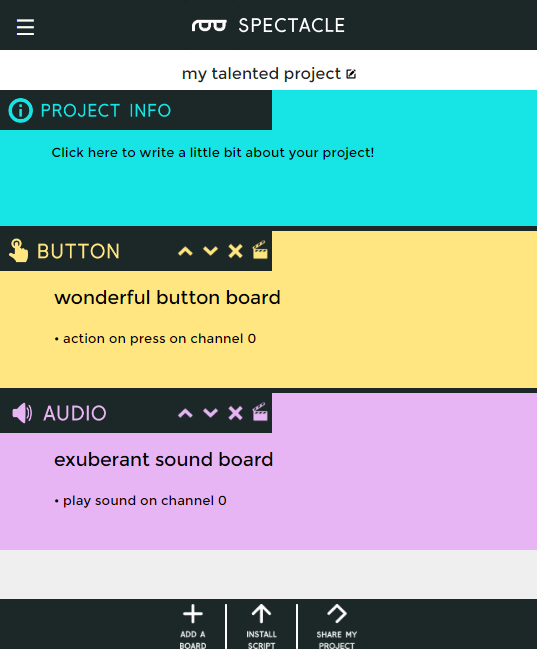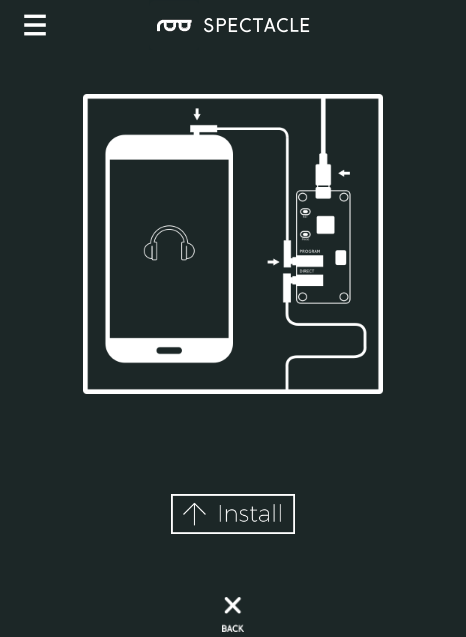Spectacle Sound Kit Hookup Guide
Example Project
Let's use the contents of the Spectacle Sound Kit to put together a working project!
Connect the boards
All of the required hardware for this tutorial is included in the kit.
Start by connecting up the boards. You'll need the included TRRS audio cables, the power supply, and the small, rechargeable speaker. Make sure the speaker is charged before the first time you try to use it!
First, plug one end of one of the TRRS cables into the "Direct" jack on the Director Board.
Next, take the other TRRS cable and plug it into the "Program" jack on the Director Board.
Take the other end of this cable and plug it into the audio jack of the phone, tablet, or computer that you'll be using to program the system.
Then take the other end of the first TRRS cable (the one connected to the "Direct" jack on the Director Board) and plug it into the "In" jack on the Button board.
Grab another of the TRRS cables and plug it into the "Out" jack on the button board.
Plug the other end of that cable into the "In" jack on your Audio board.
Now plug the speaker into the "Audio Out" jack on the Audio board.
You can now insert the micro SD card into the slot on the back of the board.
Finally, plug the Micro B end of the power adapter into the Director board, and the other end into the wall. You should see one solid light and one blinking light on both the Audio board and the Button board. On the Director board, you'll see one solid light and one light which blinks eight times, then pauses, then repeats. This shows that power is present and the boards are up and running.
Setting up the board configuration
We're going to assume that you followed the instructions on the previous page about converting sounds to OGG Vorbis format, and that there is a sound on the Micro SD card inserted into the Sound board named "00.ogg". If this is not the case, take a few minutes to go back to that page and prepare a sound.
Here's a new project in the spectacle app screen. Feel free to rename yours (it will have a different default name than the example does), as the name of the project has no effect on the rest of the process.
Click the button highlighted below to add a board to our system's configuration.
Click anywhere in the "Button" box in the list that pops up to add a Button Board to your project. Now, repeat the process and click in the "Audio" box to add an Audio Board to your project.
You'll be back to the main page, then, but there will be a couple of new lines present: one for the Button Board and one for the Audio Board.
To edit the actions assigned to these boards, click on the clapboard icon in the row of the board you wish to edit. We'll start by editing the Button Board's actions.
Any time you bring up a new board to add actions, you'll see the same screen as below. To add an action, click the "Add An Action" button in the center bottom of the frame.
This will present you with a list of actions that the current board is capable of implementing. In the case of the button board, there are five different options. Click on the first one, "Action on Press".
You'll now see the window as above. Put a '0' in the two fields indicated, causing a trigger pulse to be sent out on channel 0 whenever button 0 is pressed. Then click the "Go Back" button at the bottom of the page to save the action and return to the main page.
Back on the main page, you can see that the action you added is visible on the Button Board's row in the window. Let's edit the actions for the Sound board next.
There's only one option for actions for the Audio Board, and that's "Play Sound". Once you've clicked through to the configuration window for "Play Sound", you'll see a page like this. Fill in the blanks as shown above, then click the "Go Back" button again.
You'll be back on the main page, now, and you'll see the actions you've added under each of the lines in the project. It's time to upload the configuration to your hardware!
Uploading
Now that you've created your Spectacle program it's time to upload it to the Director Board. If you followed the instructions above, your uploading device is connected to the board and ready to go, so all you need to do is touch the "Install Script" button at the bottom of the page. That will bring up the page seen below.
Make sure the volume on your device is turned all the way up, and that no other audio source (music, video, etc) is playing in the background. Then press and hold the "RST" button on the Director Board, press and hold the "PROG" button, then release the "RST" button.
This will put the Director Board into program mode. You'll see the light on the board blink three times, pause, then repeat. This is your visual indicator that the board is in program mode. Once you've established that the board is in program mode, you can begin programming by touching the "Install" button on the Spectacle app screen. The button will gray out during the programming process, which should only last for a few seconds. Once programming is done, you'll see the light on the Director Board blink 10 times, pause, then repeat. That's your cue that the program was uploaded successfully.
Press the "RST" button again to reset the system and begin the program!
If you have any troubles, visit the troubleshooting page for help resolving your issues.
